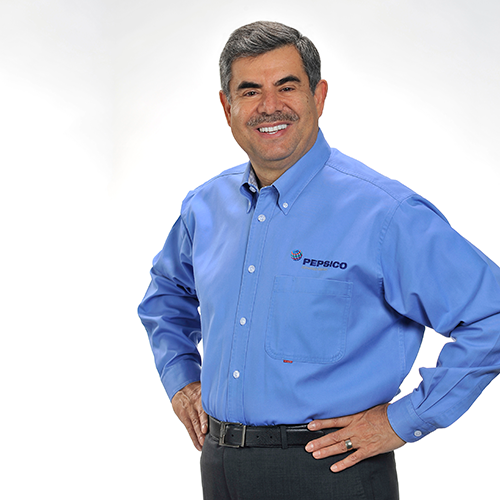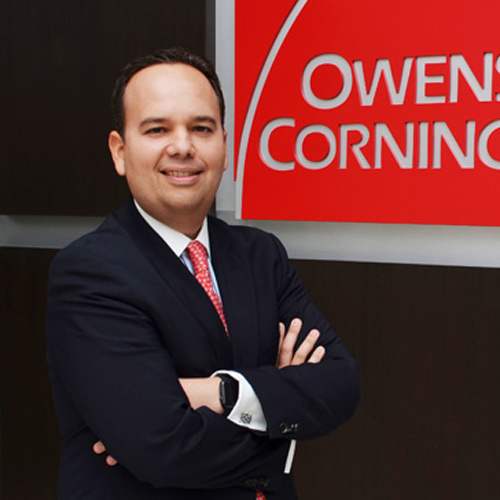General counsel and chief diversity officer are two very different positions traditionally held by two different employees with disparate backgrounds and skillsets. But not at Barilla America. At the pasta maker’s US headquarters in Illinois, one woman—and multicultural company leader—does double duty. And while taking on two leadership positions might sound overwhelming, Talita Erickson is finding ways to combine her responsibilities to maximize the potential of each role.
Erickson was born and raised in Brazil, where she attended law school and began her career with a compliance internship at HSBC bank. “I loved the idea of helping people strategize to do what’s right from the get-go instead of fixing problems after they happened,” she recalls. An interest in legal and compliance functions for international corporations led her to a second internship at Kraft Foods, and she landed in the United States on a temporary assignment that became permanent.
After almost 10 years with Kraft, Erickson was looking for a new challenge. While she was thriving in the legal department of a global firm, she longed to replace the anonymous task of supporting shareholders with a more direct connection to the consumer. She had studied business law at Loyola University and earned an MBA from the University of Chicago. She then took 18 months off to study the economics of law in Europe, and when she returned, she simply placed an alert on LinkedIn: “It advertised a lawyer who could speak Brazilian Portuguese and Portuguese in the Chicago area,” Erickson says. Shortly after, Barilla came calling.
The match was perfect. Barilla, a family-owned operation—still run by the fourth generation—has become the largest pasta company in the world. The close-knit team needed a lawyer to support the Americas region and was seeking someone who could step in as a true strategic partner. Erickson jumped at the chance.
Right away, she noticed something different about the culture. “People at Barilla have the chance to take on additional responsibilities and development opportunities instead of staying confined in a little box,” she says. This was affirmed in 2013 when Barilla started to create its diversity and inclusion board. Instead of turning outside the company, top executives asked Erickson to take the reins—even though she was five months pregnant. “They didn’t see my pregnancy as a barrier,” she says. “They valued my background and my work performance and knew I was the right person for the job.”
The reality of the situation, however, brought workload management issues to the surface. Erickson was already operating close to capacity, but since Barilla was truly committed to having her involved in their diversity and inclusion function, they hired a lawyer to assist Erickson with her time-consuming, less strategic GC responsibilities.
“Even at a basic level, diversity is about not excluding anyone, and that involves legal matters and an understanding of protected classes.”
While it’s unusual for a general counsel to operate as a company’s chief diversity officer, Erickson has found plenty of overlap. “Even at a basic level, diversity is about not excluding anyone, and that involves legal matters and an understanding of protected classes,” she says, adding that as a lawyer, she’s well-trained to handle complex matters by applying analytical skills. But diversity and inclusion requires employees to do more than avoid discrimination. They must be inclusive. Erickson says it’s an awareness issue. “People often don’t know their own bias, and we don’t always understand how our behavior affects another person,” she explains. Armed with that knowledge, she’s helping Barilla move past simple compliance to help its employees and leaders develop the skills to promote diversity and inclusion.
Erickson started by reaching out to other diversity officers to learn best practices. Next, the Barilla D&I Board started researching the existing landscape at Barilla globally to determine a baseline. Consulting firms finished a comprehensive assessment with focus groups and anonymous surveys at plants and offices all over the world. They also gathered mountains of data from HR and performed an independent review of all policies and procedures worldwide.
With the initial work done, Erickson announced an official plan in 2014 and is working with HR to imbed diversity and inclusion standards in talent management, recruiting, promotions, and all other HR policies. Barilla also established metrics around leadership commitment, gender balance, inclusion, and flexible workplace arrangements (which research has shown is linked to diversity practices). After a short time, all four metrics are moving in the right direction. For example, women in leadership positions and in the leadership pipeline jumped from 28 and 32 percent in 2014 to 35 and 41 percent in 2015. These results come after the team trained all office employees in 2014 and the vast majority of sales force employees in 2015.
All other employees will complete diversity and inclusion training in 2016.
As Erickson has launched the program with her nine colleagues and three outside partners, she’s found an advantage in her legal training. On some occasions, she’s even combined antidiscrimination (legal) and diversity and inclusion awareness training. “We start from the bare-minimum legal requirements and progress through more comprehensive concepts of how diversity and inclusion actually deliver better business performance,” she says, “and I think the information is seen as more credible when it comes from an attorney.”
Those training sessions help Erickson build personal relationships across the company, which she says is important for both roles—and her background plays a major part in her success. “Brazilians are generalized as being friendly and people-centered, and for me, it’s true,” she says. “I feel like I can come to the office every day and be myself, and that’s the feeling we want everyone to have here.” She’s found that this feeling, together with her identity, affects her performance positively in the workplace. Enabled people perform at a higher level.
For Barilla, these programs represent more than duty or obligation; the company is learning to leverage its diversity to drive revenues. As part of its efforts to better promote its offerings to markets, Barilla listened to the local team in Brazil and recently introduced a soft-wheat pasta with eggs into the marketplace. Traditionally, pasta is made with durum wheat, but most Brazilians prefer the more “al dente” pasta made with soft wheat. This initiative helped Barilla become the market leader in Brazil’s most populous area.

